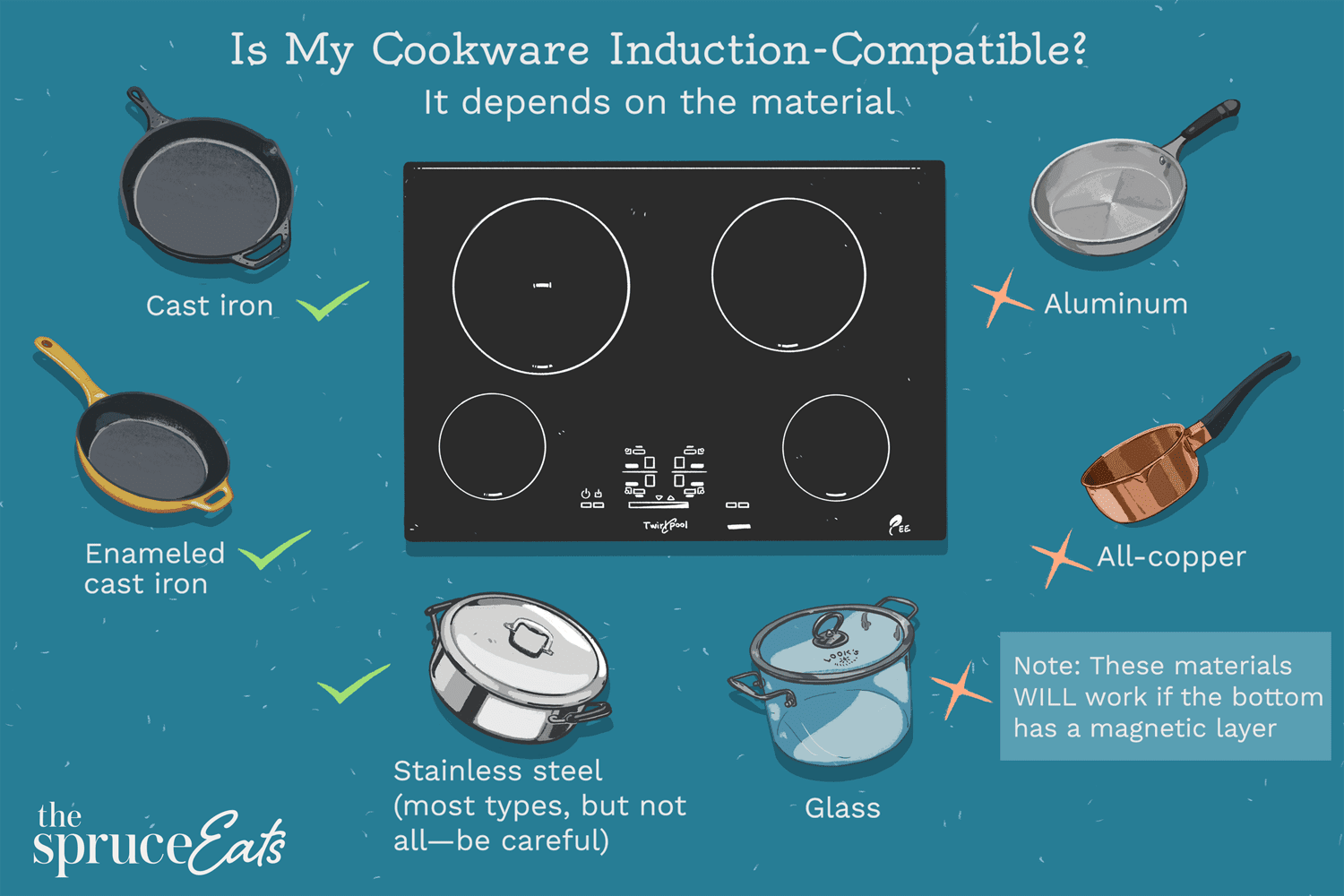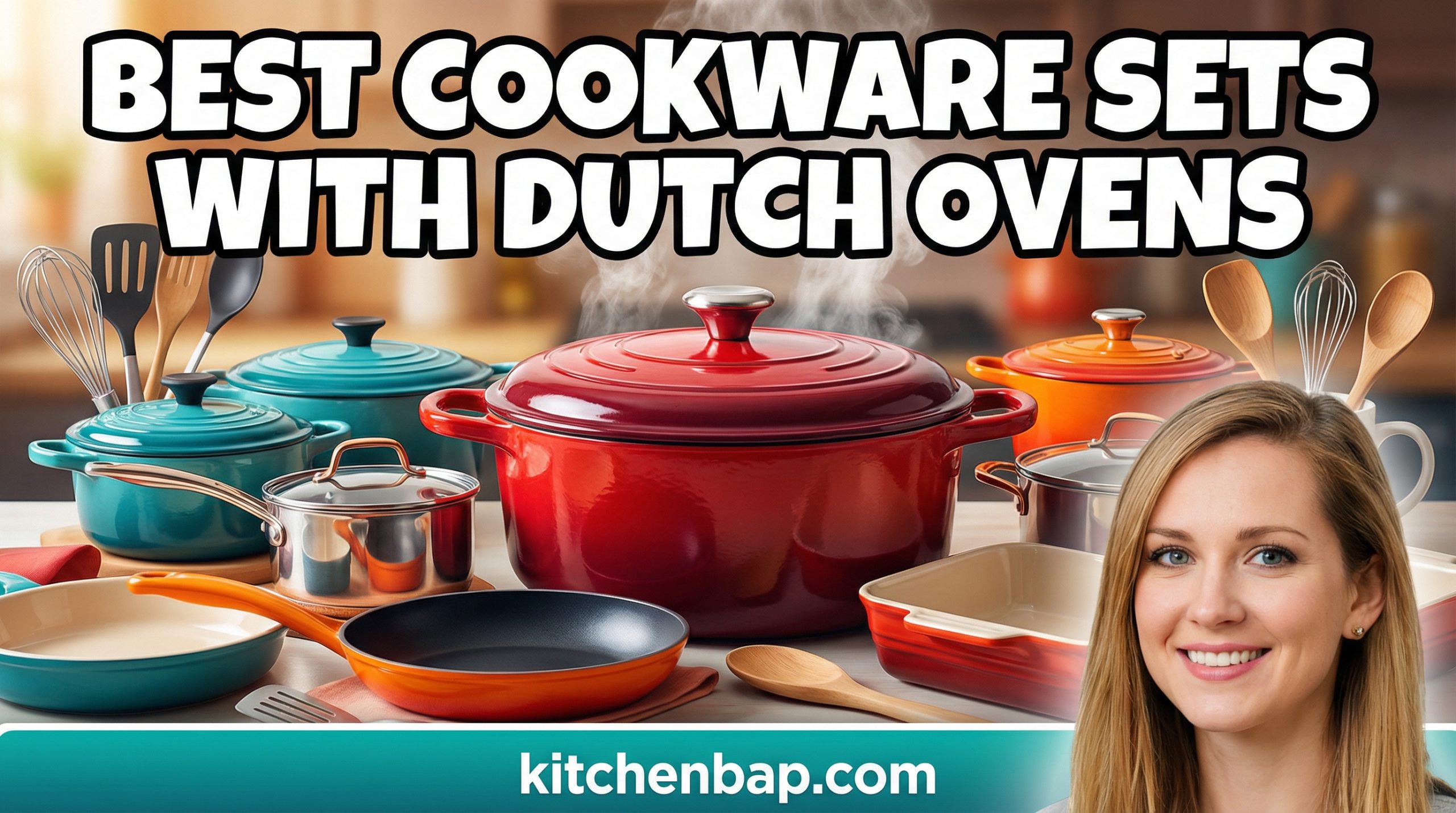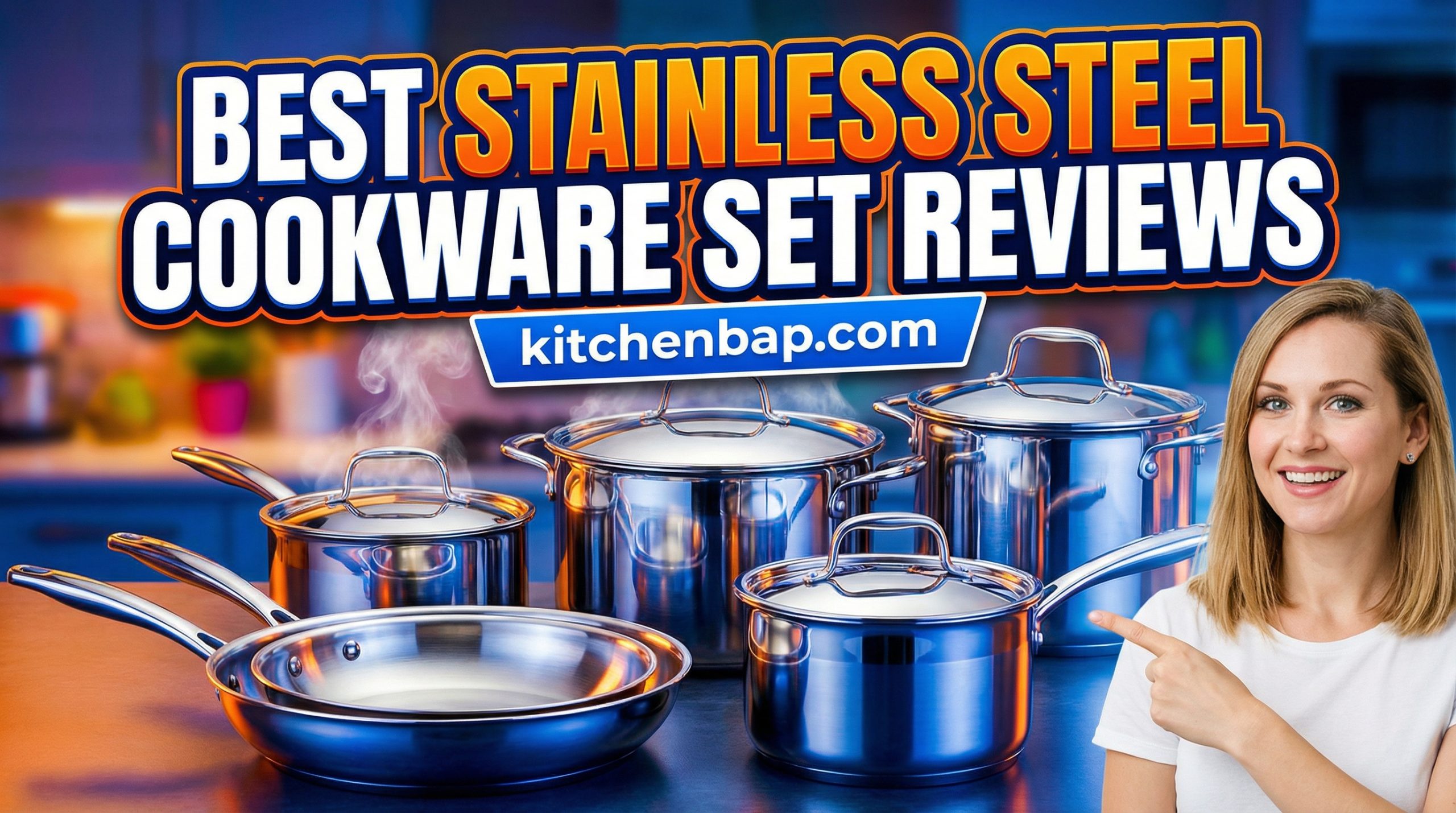To determine if cookware is induction compatible, use a magnet; if it sticks, the cookware is suitable. An induction symbol may also be present on the base.
How Do You Know If Cookware is Induction:Selecting the right cookware for your induction cooktop can greatly enhance your cooking experience. As a kitchen enthusiast or a savvy home cook, knowing how to identify induction-ready cookware is essential. The compatibility hinges on a simple yet crucial feature: the presence of a magnetic base.
This is because induction cooktops use magnetic fields to heat the pot or pan directly, rather than heating the surface which then heats the cookware. Stainless steel and cast iron are typically induction-friendly, while aluminum or glass pots are not, unless they have a magnetic layer added to their base. Recognizing this will save you time and ensure efficient cooking, making your culinary ventures both enjoyable and successful.

Credit: www.youtube.com
Identifying Induction-compatible Cookware
Is your cookware ready for induction cooking? Let’s find out together.
Materials That Work With Induction
Not all pots and pans work on induction stoves. Only certain materials do.
- Stainless steel: Strong and durable.
- Cast iron: Heats evenly but is heavy.
- Enamel cast iron: Cast iron with a smooth coating.
- Some non-stick pans: Must have a magnetic base.
Materials like aluminum, copper, or glass do not work unless they have a magnetic layer.
Physical Features To Look For
How can you tell if your cookware is induction-ready? Look closely.
- Check the bottom for a magnet. If it sticks, you’re good.
- Look for a coil symbol. It means induction-friendly.
- Flat bottoms are a must. They ensure even heating.
Remember, the right cookware makes all the difference in induction cooking.
Credit: www.quora.com
The Magnet Test
Wonder if your cookware works with induction cooktops? The Magnet Test is a quick way to find out. This simple method tells you if your pots and pans are induction-ready.
Performing The Test
Start with a magnet. A fridge magnet will do. Hold it close to the bottom of the cookware. If the magnet sticks firmly, your pan may be induction-compatible.
Interpreting The Results
Did the magnet stick? If yes, your cookware can likely be used on an induction cooktop. A strong stick means better compatibility. No stick means you might need new cookware for induction cooking.
| Magnet Reaction | Induction Compatibility |
|---|---|
| Sticks Firmly | Good to go! |
| Sticks Weakly | May work, but not optimal |
| Doesn’t Stick | Not suitable |
- Strong Stick: Ready for induction.
- Weak Stick: Might work, performance may vary.
- No Stick: Won’t work with induction.
Induction Symbol And Manufacturer Labels
Understanding the Induction Symbol and Manufacturer Labels is crucial for choosing the right cookware. Induction cooktops require pots and pans that can react to a magnetic field. This ensures fast, efficient cooking. Not all cookware is compatible with induction stovetops. It’s essential to know the symbols and labels that identify induction-ready cookware.
Common Symbols Explained
Induction cookware comes with specific symbols. These symbols indicate compatibility. Look for these signs on the bottom of pots and pans:
- Coil or spring: A coil symbol often represents induction readiness.
- Magnet: A magnet drawing can also signal compatibility.
- Induction: The word “Induction” itself might be present.
These symbols ensure you pick the right cookware for your induction cooktop.
Reading Labels And Packaging
Manufacturers label their products clearly. Look at the cookware packaging. Search for labels that state “Induction Compatible”. Check the product description. Look for mentions of induction in the list of features. This information guides your purchase decision.
Remember, not all cookware with a metal base works on induction. The base must be magnetic. Perform a simple test if in doubt. Place a magnet on the bottom of the pot. If it sticks firmly, the cookware is suitable for induction cooking.

Credit: www.youtube.com
Understanding The Science Behind Induction
Let’s dive into the exciting world of induction cooking. Understanding the science behind it is key. It’s not magic, but pure science that makes induction cookware special.
How Induction Cooktops Work
Induction cooktops use a magnetic field to heat cookware directly. Below the cooktop’s surface lies a coil of copper wire. When you turn on the power, an alternating electric current flows through this coil. This creates a dynamic magnetic field.
Cookware placed on the cooktop must have magnetic properties. The magnetic field induces an electric current in the pot or pan. This current then generates heat through resistance.
Why Certain Materials Are Compatible
Not all materials work with induction cooktops. For induction heating, materials must have magnetic properties.
- Iron and steel: Naturally magnetic, perfect for induction.
- Stainless steel: Varies, some types are induction-ready.
- Cast iron: Excellent for induction, holds heat well.
Materials like aluminum, glass, or pure copper cannot generate heat with induction. These need a magnetic layer added to work.
Thickness And Construction Of Cookware
The right cookware makes a kitchen efficient.
Thickness and construction matter, especially for induction cooking.
Let’s explore how these factors affect performance.
Impact On Performance
Cookware thickness influences heat distribution.
Even cooking depends on uniform heat spread.
Induction cooking requires magnetic materials.
These materials should react to the induction cooktop.
- Thick bases reduce hot spots.
- Thin cookware warps easily.
- Multi-layer construction enhances durability.
Optimal Cookware Base Thickness
Induction cookware needs a specific base thickness.
This ensures efficient cooking.
| Cookware Type | Base Thickness (mm) |
|---|---|
| Frying Pan | 2-3 |
| Saucepan | 2.5-4 |
| Dutch Oven | 4-6 |
A base of 2 mm is often too thin.
At least 4 mm is ideal for most pots and pans.
The Role Of Cookware Base Design
Understanding the role of cookware base design is crucial. It determines if cookware is suitable for induction cooking. The base design affects how heat spreads across the surface. Let’s explore this in detail.
Flat Versus Rounded Bases
The shape of the cookware base plays a vital role. Flat bases are ideal for induction cooktops. They ensure full contact with the cooktop. This results in efficient heating. Rounded bases are not suitable. They cannot make full contact with the cooktop.
Ensuring Even Heat Distribution
Even heat distribution is key for perfect cooking results. Flat bases help in achieving this. They allow for uniform heat spread. This avoids hot spots. Cookware with a flat and smooth base is best. It ensures your food cooks evenly.
- Check the base: It should be flat and smooth.
- Magnet test: A magnet should stick to the base. This indicates it’s induction-ready.
- Manufacturer’s label: Look for an induction symbol or mention.
Choosing the right cookware involves understanding these factors. Always select cookware with a flat base for induction cooking. This ensures efficient and even cooking.
Cookware Brands Known For Induction Readiness
Choosing the right cookware for induction cooktops is crucial. Not all pots and pans work with these modern stoves. Some brands stand out for their induction-ready cookware. Let’s explore these brands, sorted into high-end and budget-friendly options.
High-end Options
- All-Clad: Known for exceptional quality. Their stainless steel sets are a top choice for professional kitchens.
- Le Creuset: Offers colorful, enamel-coated cast iron cookware. It’s perfect for those who value both function and style.
- Demeyere: Belgian brand famous for its innovative, stainless steel designs. Their products offer superior heat distribution.
Budget-friendly Choices
- T-fal: Provides affordable, non-stick options that are induction compatible. Great for everyday cooking.
- Lodge: Offers a range of cast iron skillets and dutch ovens at reasonable prices. Ideal for those seeking durability without the high cost.
- Cuisinart: Another brand that balances quality with affordability. Their induction-ready lines include both stainless steel and non-stick options.
Transforming Non-induction Cookware
Induction cooktops require pots and pans with magnetic bottoms. Yet, many kitchens boast non-induction-friendly collections. Fear not, there’s a workaround. A simple tool known as an induction interface disk can bridge the gap.
Using Induction Interface Disks
An induction interface disk sits between your cooktop and non-induction pan. It’s a flat, magnetic plate that heats up on your induction stove. Place your regular pot or pan on top, and voilà – it becomes induction-ready. Here’s how to use it:
- Place the disk on the induction cooktop.
- Turn on the stove to activate the magnetic field.
- Set your non-induction cookware on the disk.
- Cook as you normally would, with a few adjustments.
Limitations And Considerations
While handy, these disks have limits. They may not heat as evenly as true induction pans. Response time can lag when adjusting temperatures. Consider these points:
| Aspect | Consideration |
|---|---|
| Heat Distribution | May be less even |
| Energy Efficiency | Reduced compared to direct induction |
| Time | Cooking might take longer |
Remember, induction interface disks are a temporary solution. For best results, invest in induction-compatible cookware.
Tips For Purchasing Induction-ready Cookware
Discovering the right induction-ready cookware can be a game-changer. These tips ensure a smart purchase.
Where To Shop
Begin your journey at stores specializing in cookware. Explore department stores too. Online retailers offer vast options.
- Specialty stores often have knowledgeable staff.
- Department stores provide a range of brands.
- Online marketplaces boast reviews and deals.
Questions To Ask Retailers
When at the store, asking the right questions is crucial. It ensures you get suitable cookware for your induction cooktop.
| Question | Reason |
|---|---|
| Is this cookware induction-compatible? | Confirms cookware works with induction cooktops. |
| What is the base material? | Induction cooking needs magnetic base materials. |
| Can I return it if it’s not compatible? | Ensures a risk-free purchase. |
Remember, magnets stick to induction-ready cookware. Perform a magnet test before buying. Look for the induction symbol on packaging too.
Maintaining Your Induction Cookware
Proper care ensures your induction cookware lasts for years. Let’s explore the best practices for maintaining these kitchen essentials.
Cleaning Do’s And Don’ts
- Do use warm soapy water for cleaning.
- Do dry pots and pans immediately after washing.
- Don’t use abrasive cleaners or scouring pads.
- Don’t immerse hot cookware in cold water to prevent warping.
Longevity And Care Tips
Store your cookware carefully to avoid scratches.
Use the right size induction cooktop to match your pan’s base.
Avoid high heat when cooking as it can damage cookware surfaces.
Opt for silicone or wooden utensils to prevent scratching.
Frequently Asked Questions
How Do I Know If My Pan Is Induction?
Check if a magnet sticks to the bottom of your pan; if it does, the pan is suitable for induction cooking. Look for an induction symbol, usually a coil or zig-zag line, on the pan’s packaging or bottom.
What Does Induction Cookware Look Like?
Induction cookware typically has a flat bottom and is made of magnetic materials like cast iron or stainless steel. It often features a symbol indicating compatibility with induction stovetops.
What Is The Symbol For Induction Cookware?
The symbol for induction cookware is a coil or loop, often resembling a spring or zigzag pattern, indicating compatibility with induction stovetops.
What Is Considered Induction Cookware?
Induction cookware is designed with a magnetic base to conduct electromagnetic energy from an induction stove top. It typically includes stainless steel or iron pots and pans.
Conclusion
Determining the right cookware for your induction hob is essential for optimal cooking performance. Check for a magnetic base and compatibility symbols before purchasing. Remember, the right tools can elevate your culinary experience. Seek out quality induction-ready pots and pans to enhance your kitchen arsenal.





Leave a Reply